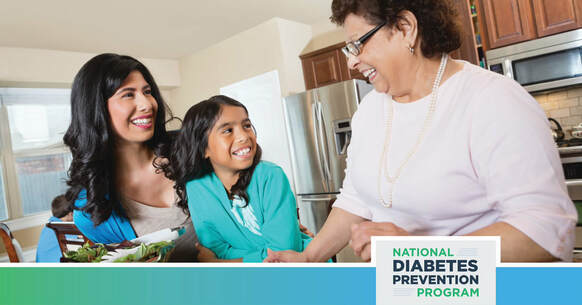|
Date: Thursday, May 16th
Time: 1:30pm-2:30pm CDT Registration Link: https://attendee.gototraining.com/r/598125928138125569 Diabetes is an epidemic and a true problem across the United States. Participation in a Diabetes Prevention Program can be very beneficial in enhancing a patient's understanding of diabetes, while learning about the critical components of lifestyle changes that may prevent it. In this webinar, Su Clinica Familiar in South Texas will share a road map to the American Diabetes Association 1705 Program, based on the one implemented at their health center. This will serve as a Promising Practice Model for other community healthcare centers that may be interested in incorporating a similar Diabetes Prevention Program. In addition to highlighting the details of the program at Su Clinica, the presentation will include a discussion on the partnerships, barriers, challenges, and successes of implementing it. Presented by Lino Zamora and Marlen Chavarin-Andrews. Women seem to do it all: they take care of their families, their pets, their homes, their finances, and their careers. With busy schedules and seemingly never-ending to-do lists, many women may be putting their own health last. But what if this year for Mother’s Day you put yourself and your health at the top of your to-do list? How? By talking to your doctor about prediabetes.
One in three Americans has prediabetes, a condition where blood sugar levels are higher than normal but not high enough yet for a type 2 diabetes diagnosis. You can have prediabetes for years but have no clear symptoms, so it often goes undetected until serious health problems such as type 2 diabetes show up. It’s important to talk to your doctor about getting your blood sugar tested if you have any of the risk factors for prediabetes. Some of these risk factors include being overweight, being 45 years or older, having a parent or sibling with type 2 diabetes, and ever having had gestational diabetes (diabetes during pregnancy) or giving birth to a baby who weighed more than 9 pounds. Prediabetes can often be reversed, and your doctor can recommend resources and programs to help you reduce your type 2 diabetes risk, including the National Diabetes Prevention Program. At CDC-recognized lifestyle change program, participants work with a trained lifestyle coach to learn how to make healthier choices when it comes to physical activity, healthy eating, and managing stress. The program is based on research that found that people with prediabetes who lost 5% to 7% of their body weight cut their risk of developing type 2 diabetes in half. For those over age 60, they reduced their risk by 71%. Jan Booker, 60, Program Participant “I’ve worked in medical research my entire adult life, but always had a difficult time managing my weight. This program has taught me how to eat healthy and find an exercise routine that works for my schedule.” As a medical librarian in a hospital, I knew I needed to make changes to my lifestyle to stay out of the hospital as a patient—but I had a hard time actually doing it. Then I found a CDC-recognized lifestyle change program. I was motivated to join the program to make sure I could play with my grandchildren for many years to come. I enjoy the program because I have met many people who also struggle with diet and exercise. We share healthy recipes and motivate each other to exercise. I now read food labels and ride a stationary bike for an hour a day. I am looking forward to a long, healthy life with my children and grandchildren. This Mother’s Day, do something for yourself and talk to your doctor about prediabetes. If you find out you have it, you can take steps now to reverse it! Learn more about diabetes and prediabetes prevention programs at www.cdc.gov/diabetes/prevention/program-providers.htm.. |
The National Center for Farmworker HealthImproving health care access for one of America's most vulnerable populations Archives
July 2024
Categories
All
|



 RSS Feed
RSS Feed